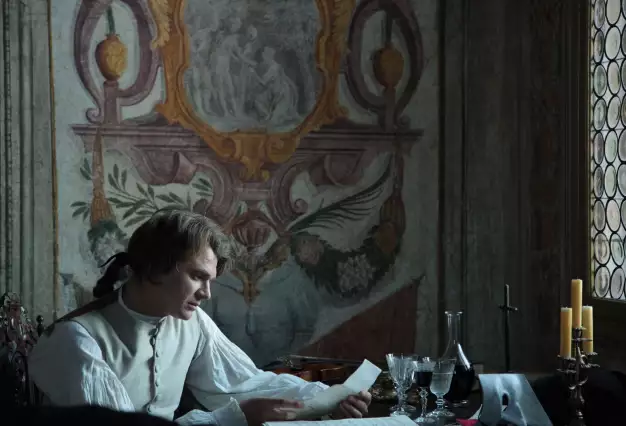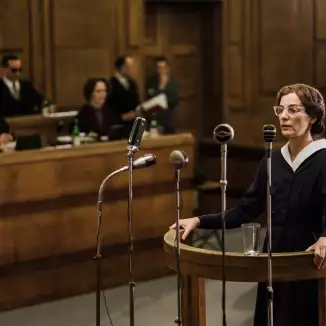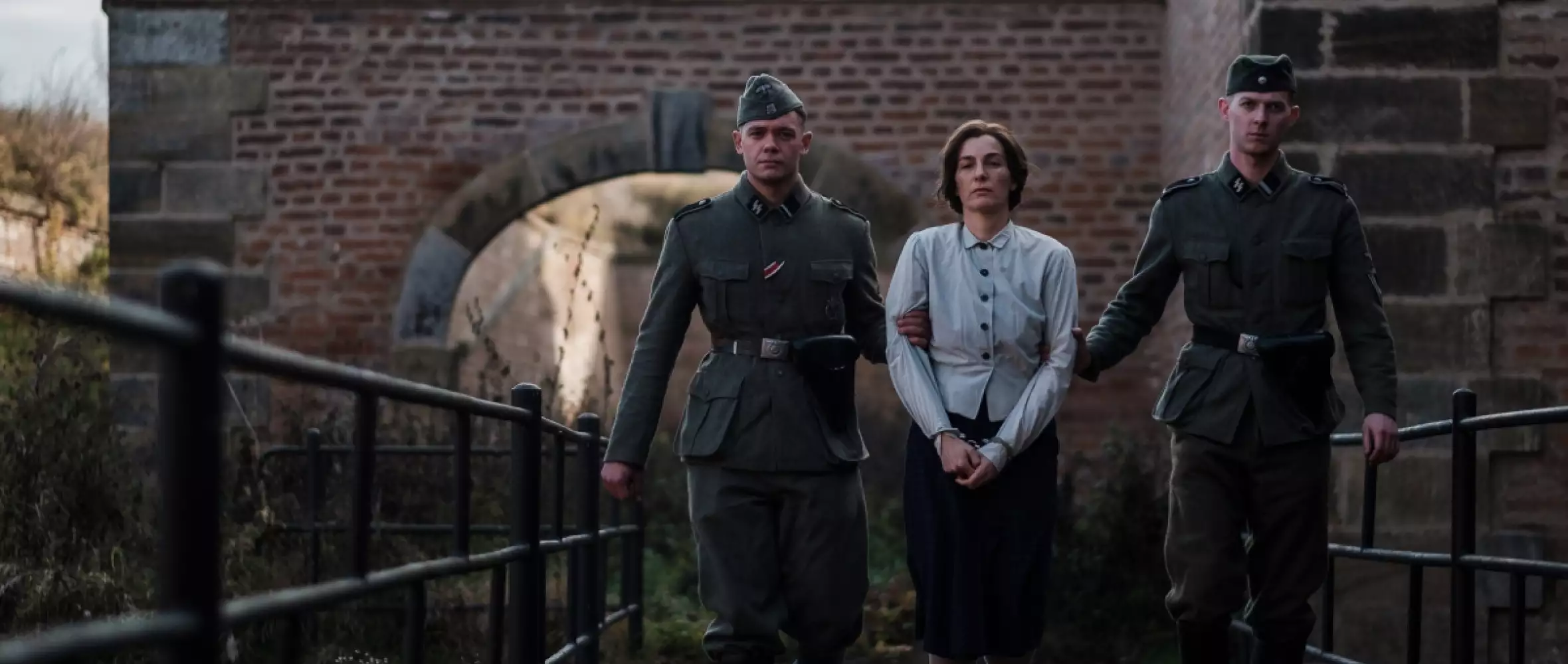
03 November 2017
This Story Really Needs to Get Out!
Interview with Director David Mrnka
This Story Really Needs to Get Out!
Interview with Director David Mrnka

Newcomer David Mrnka teamed up with Netflix for Milada, bringing the tragic story of a Czech political heroine to an international audience.
Interview by Pavel Sladký for CZECH FILM / Fall 2017
Milada Horáková, the courageous Czech politician, and a champion of democracy and women’s rights, was a victim of judicial murder under Communist Party rule in the 1950s. Convicted of conspiracy and treason in a show trial, she was sentenced to death and hanged, despite petitions pleading for clemency on her behalf signed by Winston Churchill, Albert Einstein, and Eleanor Roosevelt.
Only six women were named among the top 50 in a recent poll for “The Greatest Czech.” Milada Horáková was one of them. Everyone in the Czech Republic knows who she is, but what made you choose her as the main character for your debut?
Well, I’m Czech, so obviously I knew about her, but I didn’t have that much information about her life. The real reason for the film, though, was a visit I took to the Czech Republic while I was studying in Australia. It was in June, which is the anniversary of her execution, and I saw it on TV and realized the story was really compelling. When I went back to Australia, it stuck in my head, so I did a little bit of investigation. I visited Horáková’s daughter, Jana Kánská, asked for the rights and for help, did the research, and the rest, as they say, is history.
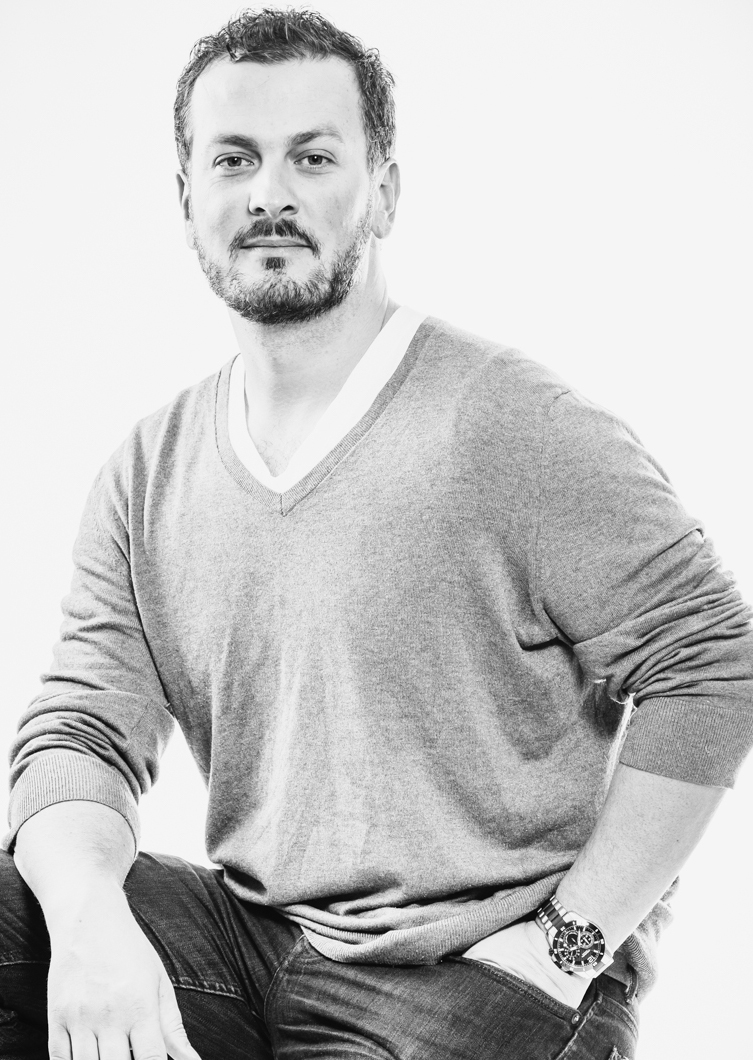
The movie focuses on the trial and the final stages of Horáková’s life. But did you also film any inner drama? Clearly, you weren’t out to make a textbook heroic story.
I think movies that try to portray someone as perfect or wonderful aren’t very interesting. You should always try to find out what it is that made the character tick. We’re all human beings, with our good sides and our bad sides. With her the bad side was she was very driven, and her family paid the price. Basically, she sacrificed them for the greater good, which is interesting, because often women choose to stay with their family, and they’re expected to have a maternal instinct. Milada made a conscious decision to help others at the expense of her own family.
Are you a history buff? Did you insist on shooting in real locations and not changing the facts?
I do love history, but this isn’t a documentary, so there is one character in the film that we changed, where I took two characters and combined them into one, because one of them was too black-and-white. But otherwise we stuck pretty much to the history. For the scenes in court, I translated very precisely what the prosecutor said. I wanted to be extra careful, since I knew the project would be under scrutiny. We paid a lot of attention to set details, for example. Our Milada stands behind the same stand where the actual Milada stood 67 years ago, during the trial. We went to great lengths to re-create the surroundings, the rooms, the courthouse, etc.
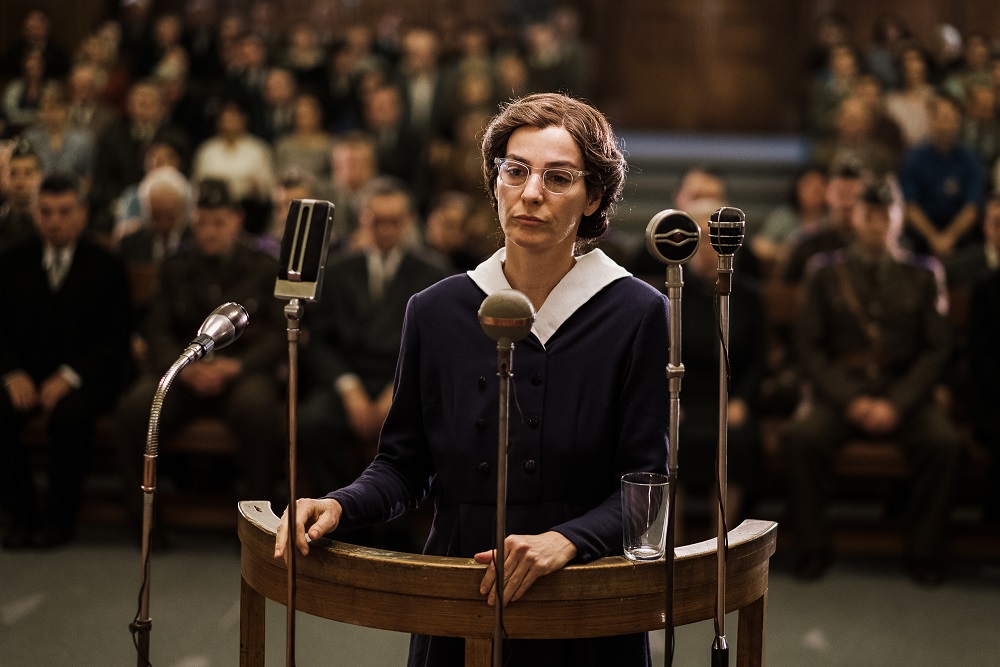 Milada is your screenwriting, producing, and directing debut. Did you originally try to find someone to share these roles with?
Milada is your screenwriting, producing, and directing debut. Did you originally try to find someone to share these roles with?
Yes, when I first started working on it, I wanted to just be producer. I hired a U.S. writer, well known, but it didn’t work out with her, then another one who also didn’t work out. I spent a lot of money on a script that was unproduceable. Maybe it was my lack of experience, but I had to rewrite it myself. So I thought, OK, I’ll write the script, give it to someone else to polish up, and then I’ll find a director. I approached lot of directors, but the more famous they are, the more money you need, and I wasn’t able to raise the funds. Finally, about three years ago, I realized I had to do it myself. I had studied directing, producing, and screenwriting in Australia, so I figured I would surround myself with the best crew ever and make it myself, or else I have to give up. So I ended up doing all three, which I don’t think is ever ideal. I wouldn’t recommend it to anyone.
But it worked, finally?
Yes, because I surrounded myself with such a great crew. I can’t tell you what an amazing experience it was. The D.O.P., the producers, the line producer, the editor— I was really lucky. I’ve shot behind the scenes on feature films around the world, from America to Japan, but I’ve never encountered so many talented people as in this country. I don’t just say it because I’m Czech—I’m very critical of Czechs—but this really is one of the best places to make movies.
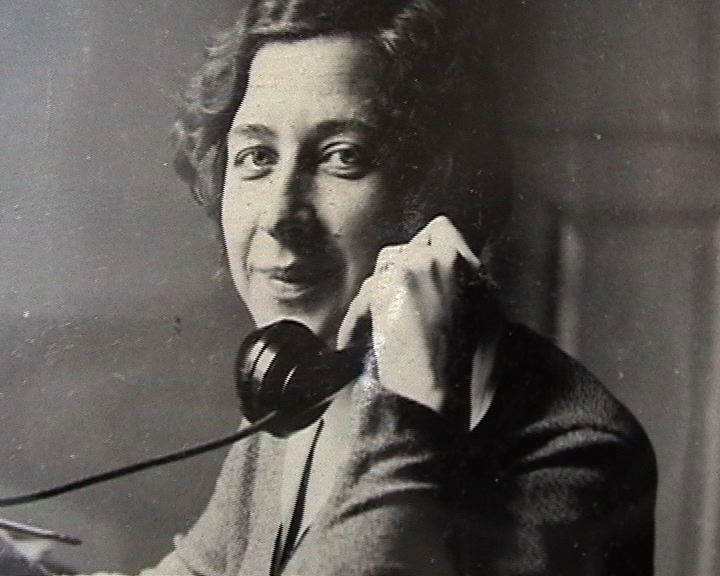
Milada Horáková (1901–50) is an important symbol of the democratic resistance to the Communist regime in post–World War II Czechoslovakia. Before the war, she studied law and worked as a lawyer and member of Parliament. She spent most of World War II in Nazi prisons and concentration camps as a result of her political views and her work on behalf of the underground resistance. Following the Communist Party coup, in February 1948, Horáková was arrested, tortured, and accused (falsely) of treason. Throughout her trial, broadcast publicly via newsreels and radio, she remained courageous and decent. On June 27, 1950, she was hanged, the only woman victim of the 1950s show trials in Czechoslovakia.
Do we see it in the film that you’re critical toward Czechs? Do you show the people who remained silent when the Communist evil was steamrolling ahead?
Yes, I think this is part of the nation’s conscience that we haven’t come to terms with. We were all part of it. I think when you love something and you want to change it, you have to be critical of it. This country has to deal with its past. And we haven’t done that. Not that I think my film alone will do that. I’m not that ambitious. But I do think we really need to rethink our past. Milada was sentenced to death by Nazis, but in the end, they weren’t the ones who killed her. It was Czechs. Her own people. She did everything for her country, and this country and its people killed her. It’s the worst thing you can imagine.
Your cast is international and Milada is filmed in English. How do you plan to attract a wide international audience to this story?
A lot of directors wanted to make a movie about Milada. Her daughter had all kinds of offers. But they all wanted to shoot in Czech. Except for me. I want to access as large an international audience as possible, because I think this is a story that transcends borders. And that’s why Jana Kánská agreed to it. I made sure before I made the movie that I would have international distribution. That’s thanks to Netflix, which will distribute Milada worldwide at the end of this year. It’ll be accessible to hundreds of millions of households. That’s what I wanted.
When did Netflix step in? VOD vs. cinema distribution is a huge issue nowadays.
They came in during the script stage. Before we started shooting. Their model is day-and-date release. Broadcasting will start the same day as Netflix puts the movie into cinemas. A lot of movie advocates are against it, because they feel it’s going to destroy theater-going audiences. But Netflix believes people will choose whichever platform they prefer, whether it’s TV, Netflix, or the cinema. A lot of big companies in the U.S., where I live, like Paramount or Sony, are pushing cinemas to shorten the window for movies to be released in cinemas before they go to VOD platforms. Right now it’s 60 days, and they’re trying to shorten it to 30, or release the films on all the platforms at the same time. Netflix did it first and now almost everyone wants to do it, but cinemas are opposed. For Milada we have some territories we retained for ourselves, so we’ll distribute it ourselves in those places, including the Czech Republic of course. Then later it’ll go worldwide with Netflix.
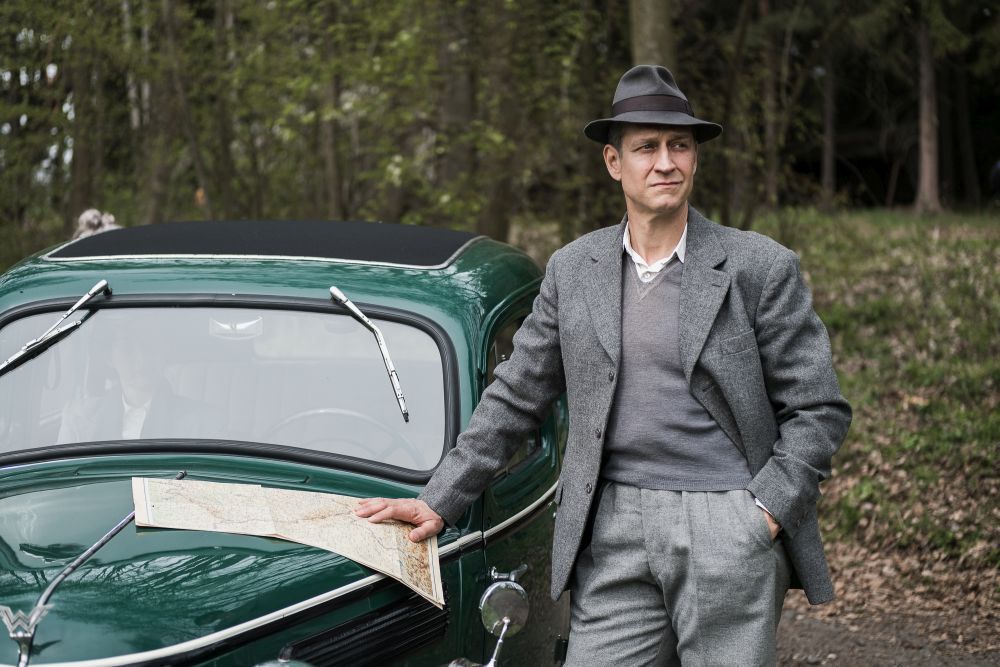 The role of Milada is played by Ayelet Zurer, an Israeli actress with a Hollywood career: Munich, Daredevil, Man of Steel, Angels and Demons. Did you choose her because of her previous work?
The role of Milada is played by Ayelet Zurer, an Israeli actress with a Hollywood career: Munich, Daredevil, Man of Steel, Angels and Demons. Did you choose her because of her previous work?
I picked her for a combination of reasons. When I met up with her, we talked about the story, and I didn’t know it yet at the time, but her mother is from Slovakia, so she’s half Czechoslovak. She’s also very sensitive and was able to understand the story in greater detail than other actresses I was met over the years. She’s a great actress and has been in some big movies, but the Israeli movies and TV series she shot also mattered to me. Plus she looks like Milada. She’s almost an exact copy! That’s not always necessary, but it does help viewers, especially Czech viewers, who know what she looked like. I think they would be very critical if the person looked completely different.
What was the budget and how tough were the financial limits for you?
I can’t talk numbers, but the budget was pretty restricted. Especially considering it was a period drama. We shot in the Czech Republic, which used to be pretty cheap, but we had to block off a lot of parts of Prague, which ended up being expensive. With the costumes too. But I still think we did pretty well.
Related news
Related films
Milada
Set against the beautiful and complex landscapes of post-war Czechoslovakia, Milada Horáková’s true story shook the world and triggered powerful and fervent responses from many nations and renowned individuals across the globe –…
Related people
David Mrnka
Director, Producer, Writer, Story, Film Contact


